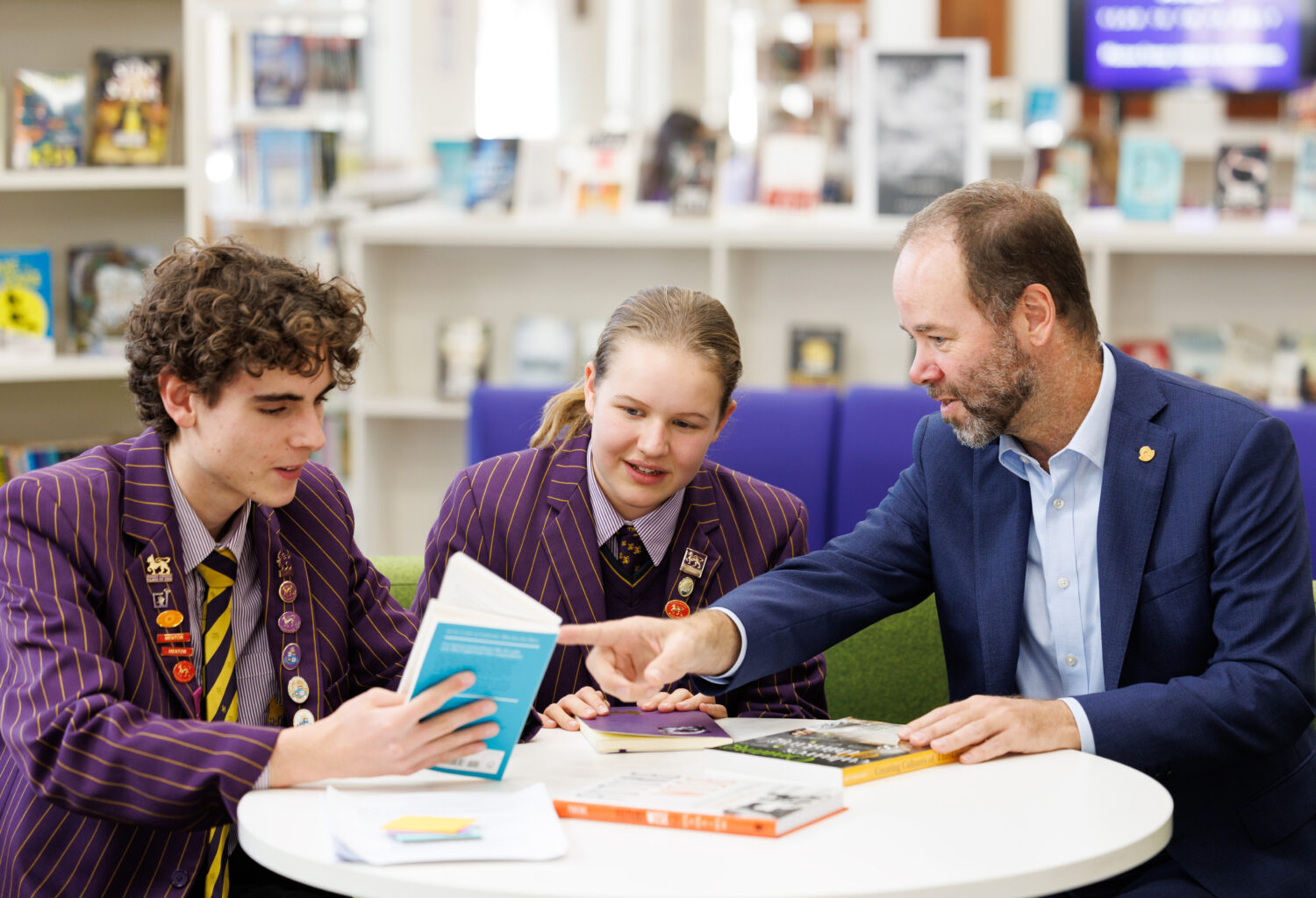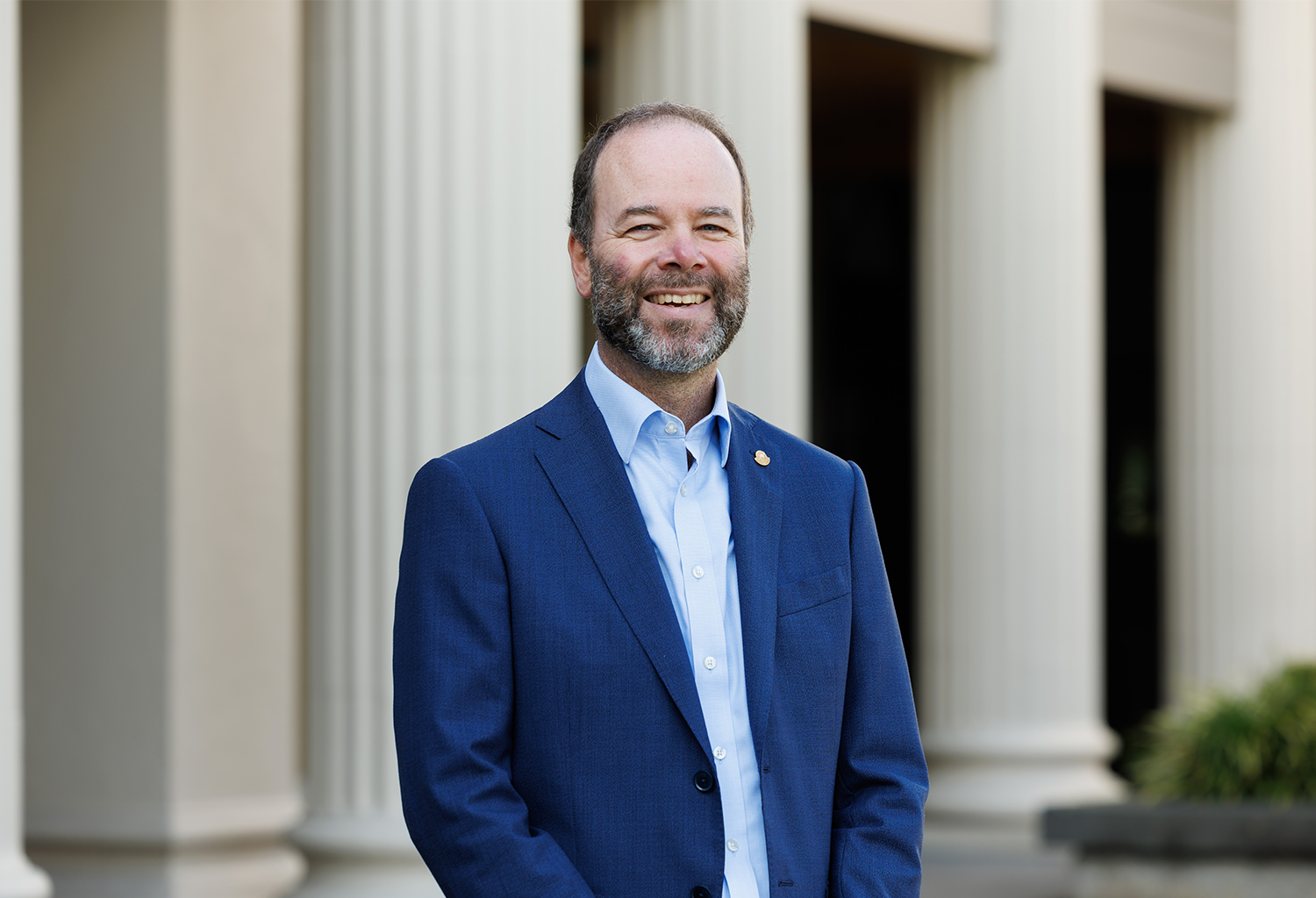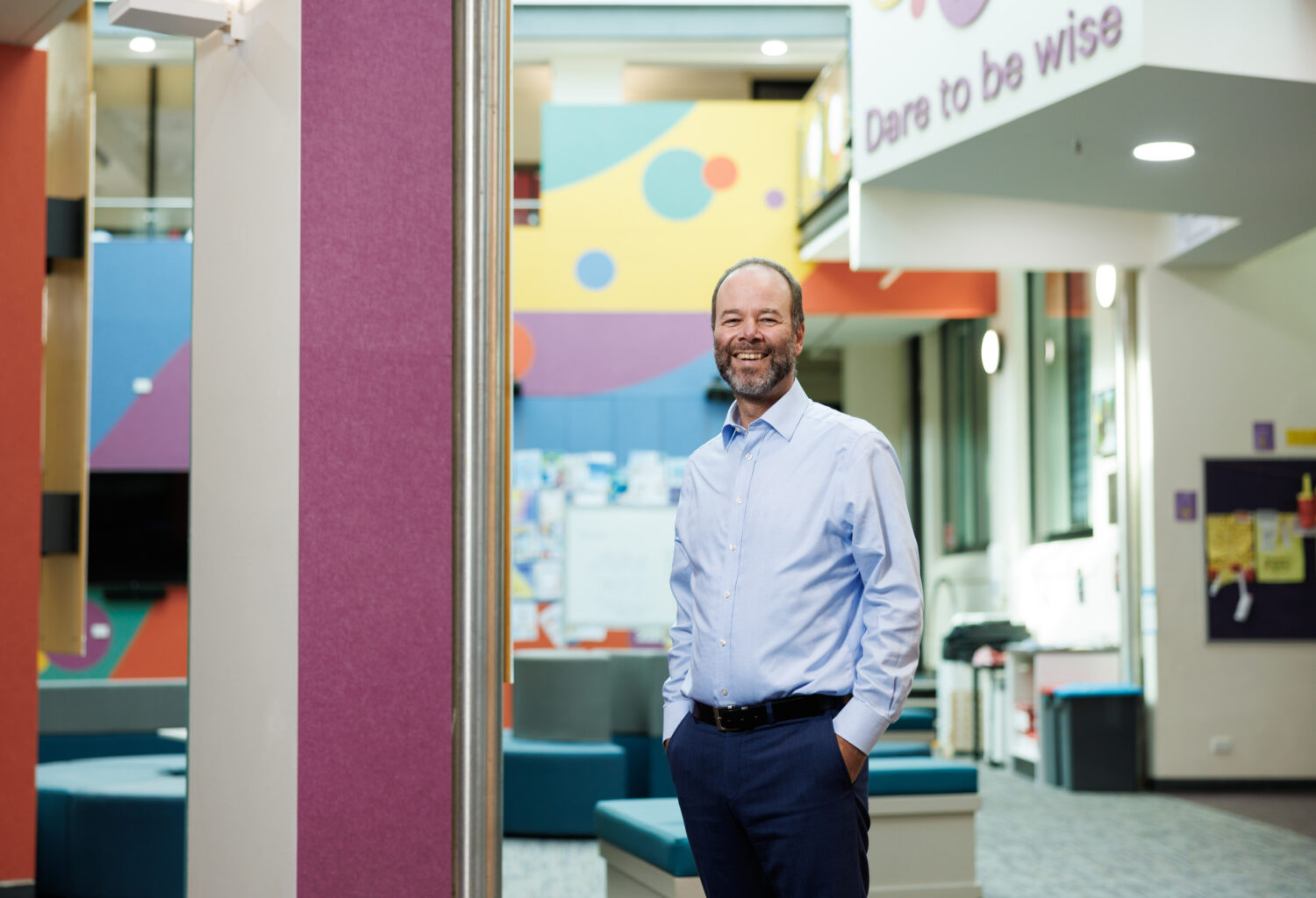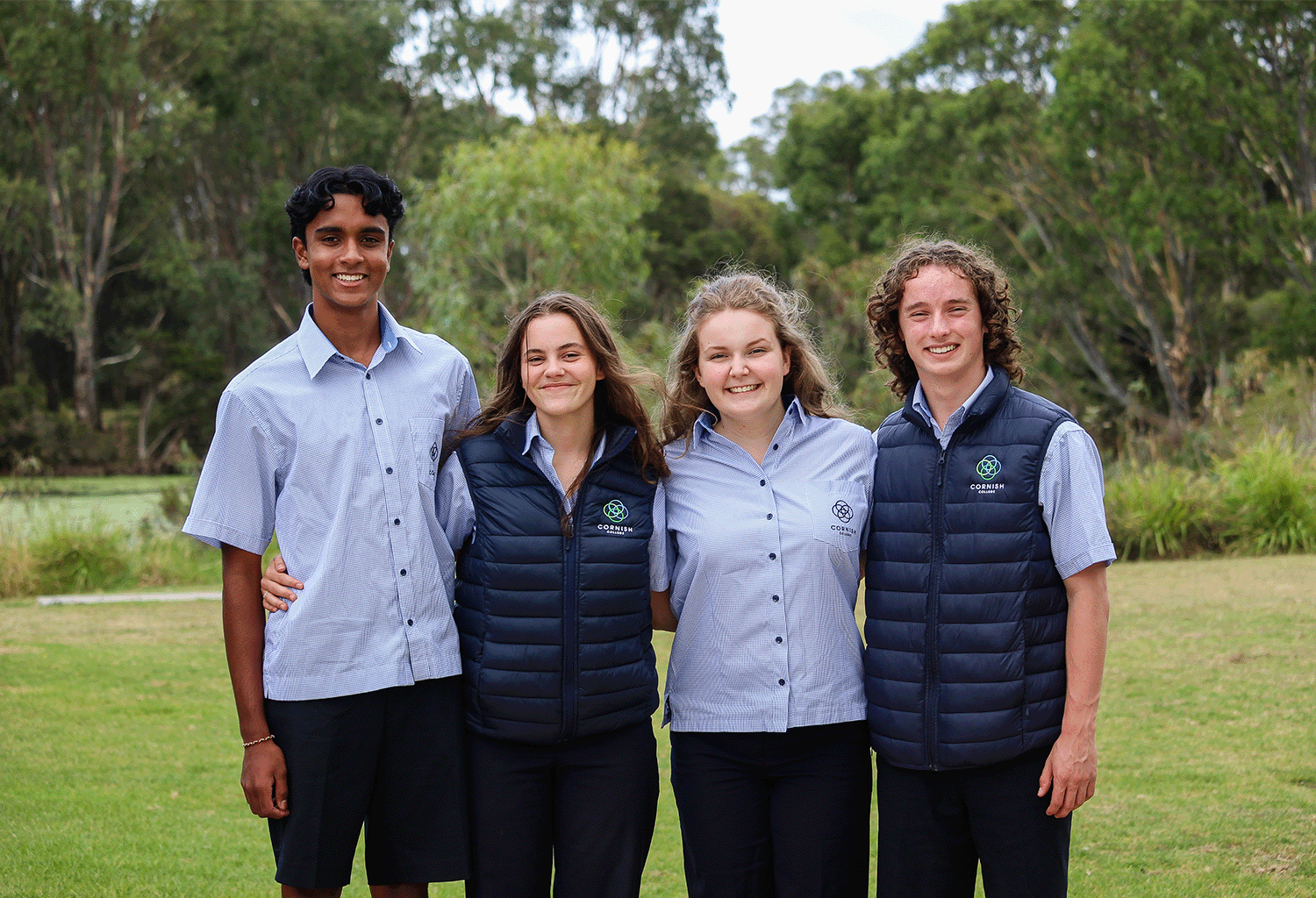Cameron Paterson: What it means to be a good teacher
Q&A with the Director of Learning at Wesley College

Every teacher and every school wants their students to achieve and thrive. Through his leadership, innovative approaches and dedication to learning, Wesley College’s Director of Learning Cameron Paterson is helping students and teachers do exactly that.
In September 2024, Cameron was recognised with a Schools Plus Commonwealth Bank Teaching Award. This growing cohort of outstanding educators are making a difference in and beyond their schools to influence and inform best practice, policy and the broader profession.
We asked him a series of questions to get his perspective on innovative teaching methods, the challenges of middle years teaching, advice for educators looking to create meaningful conversations with parents and more.
1. Your educational philosophy is "learning is a consequence of thinking." Can you elaborate on this and what it means for students?
My philosophy is grounded in the belief that meaningful learning occurs when students are actively engaged in the process of making sense of the world around them. Traditional teacher-centred models often reduce students to passive recipients of information, stifling their natural curiosity.
In contrast, a thinking-centred approach shifts the focus to students’ ideas, experiences and insights, fostering a learning environment where they are encouraged to explore, question and reflect.
Good teaching, therefore, begins with trusting the learner’s mind. It’s not just about delivering content but about creating opportunities for students to think critically and creatively. When we listen carefully to students’ thinking, we can better guide them, honour their individual perspectives and support deeper understanding.
I believe that everything a teacher does –whether asking questions, designing tasks, or offering feedback – should nurture students’ trust in their own thinking. When students believe their ideas matter, they are more likely to engage deeply, which in turn fosters a more active and meaningful learning process.
2. Can you discuss some of the innovative teaching methods you’ve implemented at Wesley College and their outcomes?
At Wesley College, innovation is less about specific methods and more about creating a culture of trust and creativity. We believe that when teachers are empowered with professional agency and genuine autonomy, they are more likely to lead innovative practice. We foster this culture through initiatives like our Lead Teacher pathway and innovation travel fellowships, which provide avenues for teachers to explore and implement new ideas.
Key to this is our emphasis on collaborative learning, where teachers regularly work together to achieve shared strategic goals. Professional learning, through mentoring, coaching and postgraduate study support, is central to empowering teachers to lead from their own strengths.
“To create meaningful conversations with families, educators must move beyond traditional one-way communication methods and actively engage parents as partners in their child’s education.”

3. How do you approach the challenge of middle years teaching and what specific initiatives have you launched in this area?
In the middle years, our focus has been on empowering students through greater agency and self-directed learning. A recent Middle Years Review highlighted the need to engage students in more active, experiential learning experiences. We are doing this by introducing more varied and relevant learning activities that encourage experimentation and resilience, both in students and teachers.
To support this shift, we are reducing some formal assessments to avoid student overload and foster more intrinsic motivation. In addition, we are exploring alternative assessment methods, such as through our research partnership with the University of Melbourne’s New Metrics initiative, which focuses on assessing complex competencies. We are also expanding elective subject offerings to increase student agency and engagement.
“Teaching is one of the few professions where you can have a profound, long-lasting influence on the future, and that keeps me motivated every day.”
4. What advice would you give to other educators looking to create meaningful conversations about learning with their students’ families?
To create meaningful conversations with families, educators must move beyond traditional one-way communication methods and actively engage parents as partners in their child’s education. Rather than focusing solely on curriculum presentations or parent-teacher nights, we encourage more collaborative approaches, such as student-led conferences and presentations of learning, where parents can participate in the conversation.
One simple yet powerful strategy is to ask parents, “What is something you would like me to know about your child?” This question fosters a genuine dialogue and helps build stronger relationships between home and school. When parents feel heard and valued, they are more likely to contribute to their child’s learning journey in a meaningful way. Schools that create these opportunities for collaboration not only enhance student outcomes but also build a stronger, more inclusive community.
5. How do you stay motivated and inspired in your role, especially when facing challenges in education?
Staying motivated in education comes naturally when you are driven by a sense of purpose and surrounded by the energy of young people. I find inspiration in interactions with students, particularly through our Student Learning Council which amplifies student voice in College decisions. Their perspectives remind me of why I’m an educator and keep me connected to the realities of teaching and learning.
I’m fortunate to work with passionate colleagues who share a commitment to making a difference. Building strong professional relationships and finding your “tribe” among colleagues is incredibly sustaining. While my role is now focused on supporting teachers rather than being in the classroom, I’m constantly inspired by their dedication and the transformative impact they have on students. Teaching is one of the few professions where you can have a profound, long-lasting influence on the future, and that keeps me motivated every day.
The challenges in education are growing more complex, but that’s where the joy of leadership comes in—developing adaptive and innovative responses to these challenges keeps the work dynamic and rewarding. I strive to maintain a broad perspective, focusing on long-term goals and remembering that most issues in education, while important, are not existential crises. This allows me to stay grounded and forward-thinking.




